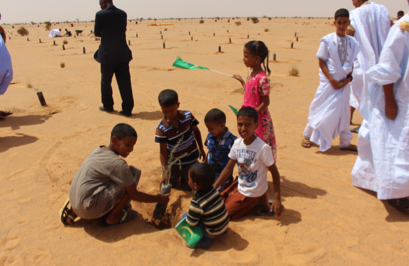The negative effects of climate change are being experienced by local communities within a wide range of economic sectors in developing countries across Africa and the Asia-Pacific. Multiple factors make these countries particularly vulnerable to observed and expected climate change impacts. These include poverty, dependence on rain-fed agriculture, as well as limited capacity of regional and national institutions to plan and implement adequate adaptation technologies and practices. There is an urgent need for immediate actions to address climate change before its impacts become unmanageable.
The EbA South project aims to assist vulnerable communities in Africa and Asia-Pacific to build climate resilience, by improving their capacity to plan, implement, finance, research and legislate in support of Ecosystem-based Adaptation (EbA).
To achieve the objectives of the project, the project team conducts inter-regional activities for capacity building and knowledge management, as well as on-the-ground EbA interventions in three pilot countries, i.e. Mauritania, Nepal and Seychelles—representing three different vulnerable ecosystems (dryland, mountain, and coastal ecosystems, respectively).
The project comprises three main components:
Component 1: Inter-regional coordination and capacity building for developing countries to plan and implement EbA
Outcomes
Component 2: Inter-regional online knowledge support on EbA
Outcomes
Component 3: Transfer of EbA technologies to three pilot countries in Africa and Asia-Pacific
Outcomes
Ecosystem-based Adaptation through South-South Cooperation (EbA South) is a full-sized GEF project, funded through the Special Climate Change Fund. Officially known under the title "Enhancing Capacity, Knowledge and Technology Support to Build Climate Resilience of Vulnerable Developing Countries," the project is implemented by UNEP and executed by the National Development and Reform Commission of China (NDRC), through the Institute of Geographic Sciences and Natural Resources Research, Chinese Academy of Sciences (IGSNRR, CAS). The Project Management Unit is hosted by UNEP-IEMP to provide overall project management services, technical support, and foster South-South linkages for the project.
For more information, please refer to: http://www.ebasouth.org/home.
